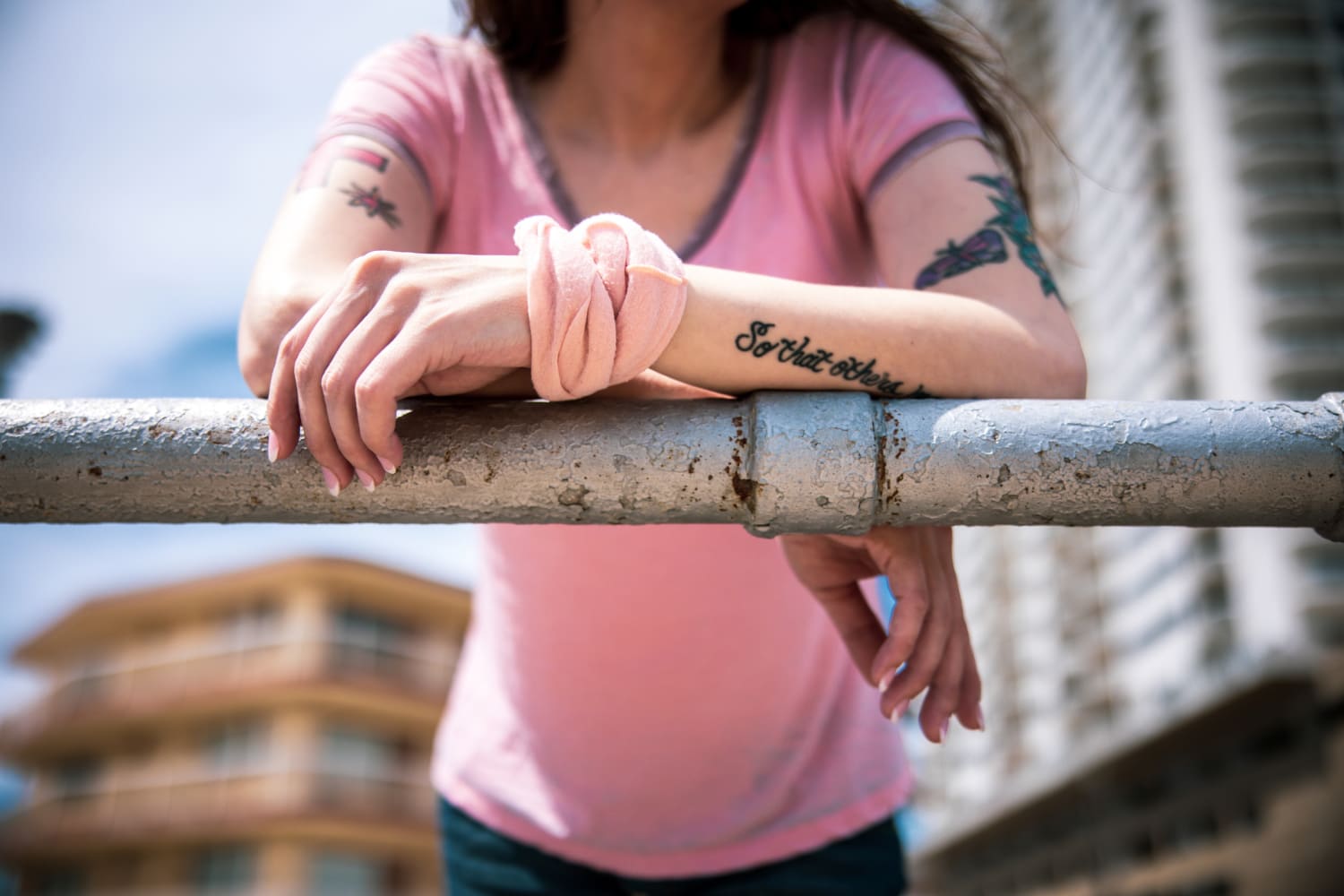New Jersey has adopted a policy that requires state prisons to house transgender people according to their gender identity rather than their sex assigned at birth.
The policy change is part of a settlement the American Civil Liberties Union of New Jersey announced Tuesday, and it puts the state among the handful of others with similar policies.
The ACLU of New Jersey and attorney Robyn Gigl of GluckWalrath LLP sued the N.J. Department of Corrections and its officers in August 2019 on behalf of a trans woman who went by the pseudonym Sonia Doe in court documents.
Prior to Doe’s lawsuit, the department’s policy was to house people according to their genitalia, according to Tess Borden, an ACLU of New Jersey staff attorney on the case.
‘Those memories still haunt me’
Doe was housed in four different men’s prisons over 18 months, according to her complaint, which stated that she was incarcerated for “offenses stemming from her addiction” to painkillers. During that time, she alleged, corrections officers misgendered her, denied her female commissary items and didn’t protect her from other inmates who harassed her. She alleged that three officers also physically assaulted her in May 2019 after she corrected them for misgendering her.
The department, in response, charged and found her guilty of assault and forced her to spend 270 days in isolation, among other sanctions, according to the ACLU of New Jersey.
A few weeks after Doe’s lawyers filed the complaint, the department transferred her to the Edna Mahan Correctional Facility for Women.
Chris Carden, a public information officer for the department of corrections, told NBC News in an email that it “views this settlement agreement as significant steps in the right direction.”
“While the Department did have existing processes in place, the policy outlined in this settlement is an update to those processes,” he wrote. “Anyone incarcerated under NJDOC care may at any time provide information regarding their gender identity to the NJDOC. The Department then takes careful measures to ensure they are properly housed in-line with their gender identity and their housing preferences, while ensuring both their safety and the security of the institution. Overall, the steps being taken support the important cultural changes being made throughout the Department.”
As part of the settlement, which the ACLU of New Jersey filed in the Mercer County Superior Court on Tuesday, the department will adopt an agencywide policy meant to protect people in state custody who are transgender, intersex and nonbinary, according to a press release.
In addition to the policy change, the department will pay Doe $125,000 in damages and will pay her attorney fees.
“When I was forced to live in men’s prisons, I was terrified I wouldn’t make it out alive,” Doe said in a statement. “Those memories still haunt me. Though I still have nightmares about that time, it’s a relief to know that as a result of my experience the NJDOC has adopted substantial policy changes so no person should be subjected to the horrors I survived.”
New Jersey is now one of a handful of states that have passed laws or implemented policies requiring that inmates be housed according to their gender identity. Borden said the state’s policy goes further than most others, though, because it includes provisions that will help the department of corrections implement the policy.
“The purpose section includes the word ‘dignity’ — that it’s the purpose of this policy in the New Jersey Department of Corrections to recognize the dignity of transgender, intersex and nonbinary people in its custody,” she said. The policy also requires officers to use a trans inmate’s proper pronouns, including gender-neutral pronouns such as they/them, and the gender neutral honorific “Mx.” instead of “Mr.” or “Mrs.”
“It is a commitment, on paper, to really affirm trans lives and the lives of nonbinary and intersex folks in DOC custody as well,” she said.
‘A new era in New Jersey prisons’
One of the key components of the new policy created as part of the settlement establishes a presumption that people in state custody will be housed in line with their gender identity, and a “commitment that placement in line with gender identity will never be considered a management or security problem solely due to the person’s gender identity,” according to the ACLU of New Jersey.
California, Massachusetts and Connecticut also have policies in place that establish a presumption that trans inmates will be housed according to their gender identity, though Borden said there are carve-outs in all of those states that allow officials to go against that policy if they have a “security or management” concern.
New Jersey’s policy will also establish intake and identification procedures that include questions about gender identity and pronouns, and it will recognize self-attestations, which means someone doesn’t have to prove their gender identity through invasive searches or other means.
The policy will also prohibit staff harassment and discrimination based on a person’s actual or perceived gender identity, and will guarantee gender-affirming undergarments, clothing and other personal property, among other policy changes.
There’s also language in the policy that states an incarcerated person’s own views of their health and safety will be taken into account. Borden noted that some trans men, for example, may feel safer in a women’s prison, and this part of the policy would allow for that flexibility.
Finally, the settlement will require the department to actually implement the policy by distributing it to all staff, requiring them to sign a form acknowledging that they’ve read it and holding additional training for some high-level staff members.
“Having a policy that now explicitly recognizes the dignity of transgender, intersex, and non-binary people begins a new chapter at the DOC,” Gigl said in a statement. “While we know trans, intersex, and nonbinary people still face extraordinary risk of harm, it is our hope that this policy will shepherd in a new era in New Jersey prisons of protecting and affirming transgender, intersex, and nonbinary people’s lives.”
‘A step in the right direction’
Borden said Doe feels that the victory isn’t just for her, but for many other trans people who have been in similar situations.
A 2015 survey by the National Center for Transgender Equality and the National Gay and Lesbian Task Force found that 21 percent of transgender women confined in men’s facilities reported suffering physical abuse while in prison, and 20 percent reported sexual violence.
More than one-third (37 percent) of survey respondents who were taking hormones before their incarceration said they were prevented from taking their hormones while incarcerated.
The settlement and resulting policy change are part of a larger shift by the department since the Department of Justice found last year that conditions at the Edna Mahan facility violated the Constitution, Borden said.
“My hope is that this policy is a step in the right direction in New Jersey’s commitment to keeping people in this prison safe,” she said.
Follow NBC Out on Twitter, Facebook & Instagram
Source: | This article originally belongs to Nbcnews.com











